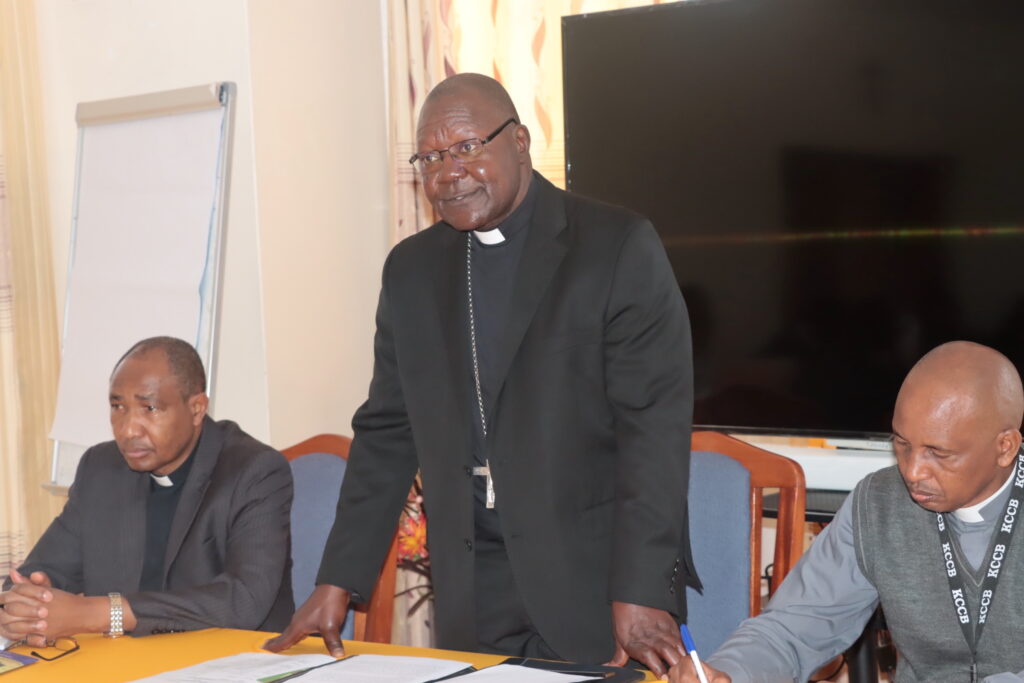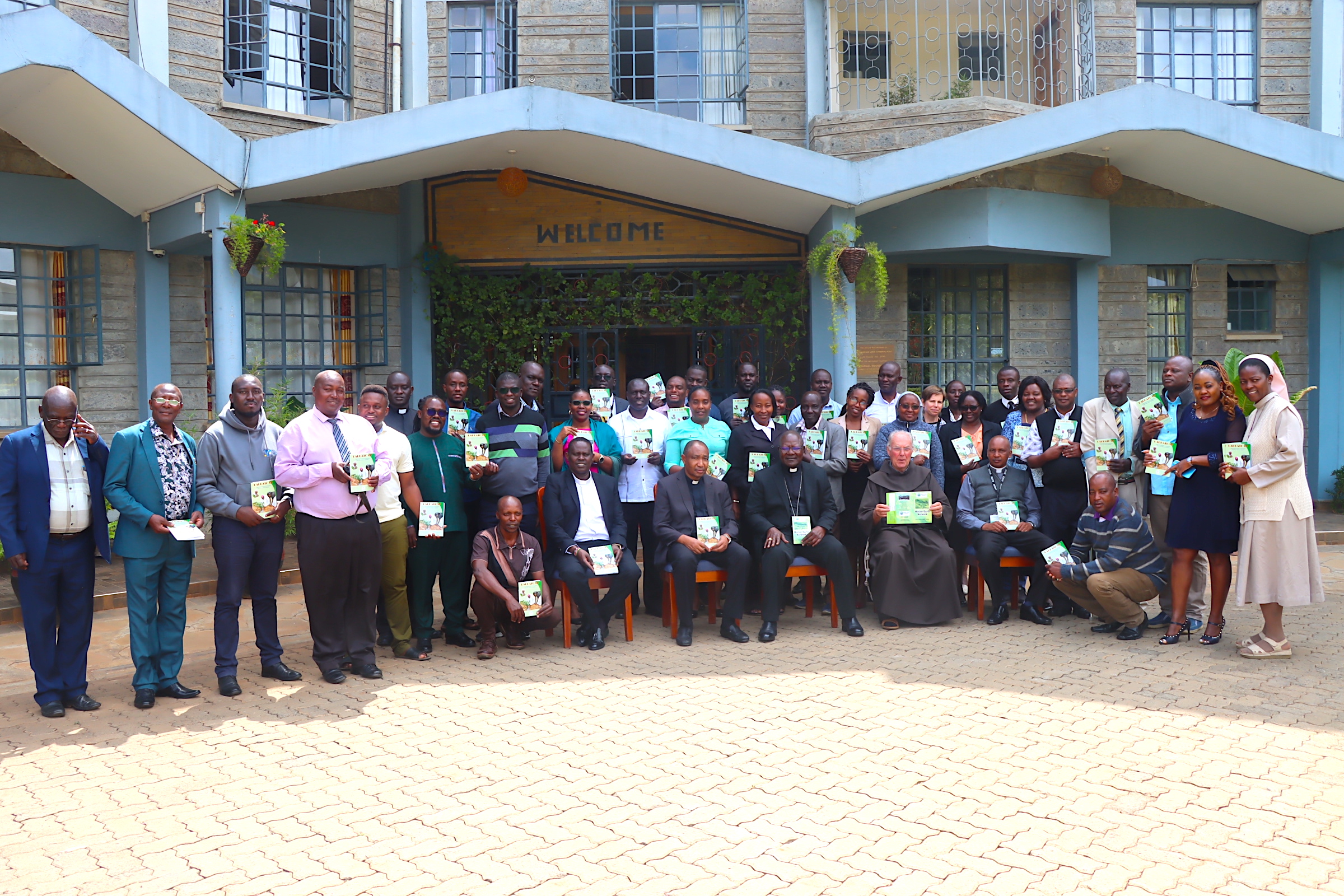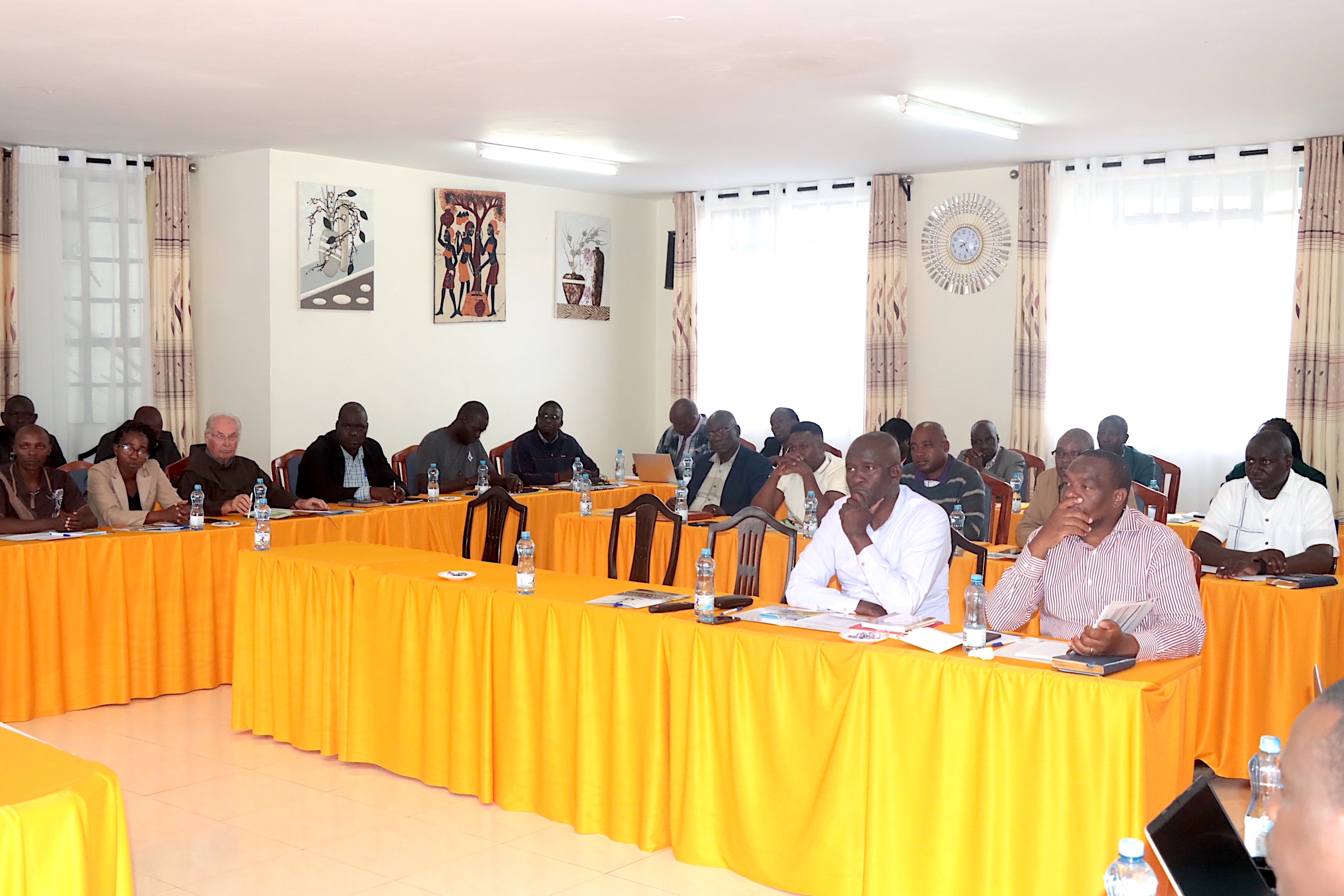AMECEA: Justice and Peace Coordinators in Kenya Challenged to “Make Nature a Sanctuary”

Bishop John Oballa Owaa addressing the participants
Sr. Jecinter Antoinette Okoth, FSSA
As climate change impacts the society leading humanity as well as animals to face survival challenges, coordinators for Caritas, Justice and Peace and those working as environmental officers within dioceses in Kenya have been reminded to act urgently towards making the environment a home and place of safety for all.
During a two-day meeting for the environmental actors at Donum Dei Center in Kenya’s capital, Nairobi, the Chairman for the Catholic Justice and Peace Commission (CJPC) at the Kenya Conference of Catholic Bishops (KCCB), Rt. Rev. John Oballa Owaa, acknowledged that people have neglected the call to care for the earth for a long time, and instead, degraded the environment and over-exploited natural resources hence the need to move to action.
Exploitation of natural resources the Prelate of Kenya’s Ngong Diocese narrated, “has resulted in a planet that is polluted and hotter, increasing the suffering of God’s creation, local communities left vulnerable to natural hazards such as floods, droughts, insect infestation (locusts), landslides, strong winds and lightning among others.”
Additionally, the Bishop said, that the current ecological problems which many parts of the world, including Africa, are experiencing “are caused by the misuse of land and sea and their natural resources, (yet) God’s intention was that human beings should respect and take good care of the environment in order that it may support life.”

With this concern, Bishop Oballa noted that the state of affairs on the environment challenges all people “to an honest conversation on care for our common home…to work together, think, dream and live the environment as well as make nature our sanctuary.”
Addressing over 35 participants who attended the workshop on Laudato Si’ implementation guidelines dissemination, the CJPC chairman pointed out that the Holy Father launched Laudato Si’ Action Platform which highlights seven sectors as key to the implementation of the Pope’s encyclical letter.
“The encyclical proposes a seven-year journey “to bring the whole human family together to seek sustainable and integral development.” This is a journey that we are all called to participate in as we join hands in the important mission of caring for our common home,” the Bishops said stressing the need of “working together and being ambitious towards the common good, since it is through collective actions that we make a difference.”
The seven priority areas in the encyclical include: response to the cry of the earth, response to the cry of the poor, ecological economics, adoption of simple lifestyles, ecological education, ecological spirituality and community engagement and participatory action.
According to the Prelate, the story of creation in the scripture, “And God saw everything that he had made, and, behold, it was very good” (Gen 1:31, advocates for stewardship of God’s creation which is a call to care of our home as we utilize the resources wisely.
He laments that eight years down the line since the publication of Laudato Si’, there is no coordination between different actors who are working in response to environmental challenges
“The Church needs to leverage its structures to give voice and dignity to the local communities who are affected by the cry of the earth. This can only be achieved through partnership with Government, academic institutions, civil society actors and other like-minded stakeholders,” Bishop Oballa pointed out emphasizing on collaboration to environmental care.

As the executive secretaries and representatives from institutions CJPD national office staff focus on Laudato Si’ implementation guidelines dissemination during the workshop, the Bishop invites all to participate in the suggested action within the framework of the Laudato Si’ Action Platform saying, “Individuals, families, Small Christian Communities, parishes, dioceses and all Catholic institutions, have a duty to undertake the proposed seven-year journey of integral ecology.”
As a way forward, he underscored that “Our choices on production and consumption must respond to this noble objective and take a conscious decision to start afresh and commit to responding to the cry of the earth. Our lifestyles should not in any way aggravate or over-exploit the natural resources that our Mother Earth readily gives us for free.”
In conclusion, the Bishop disclosed that his hope is for the deliberations made after the workshop “will call upon us to dig deep and make a bold commitment which can be translated to actions embracing practices that enhance the care for our common home.”


